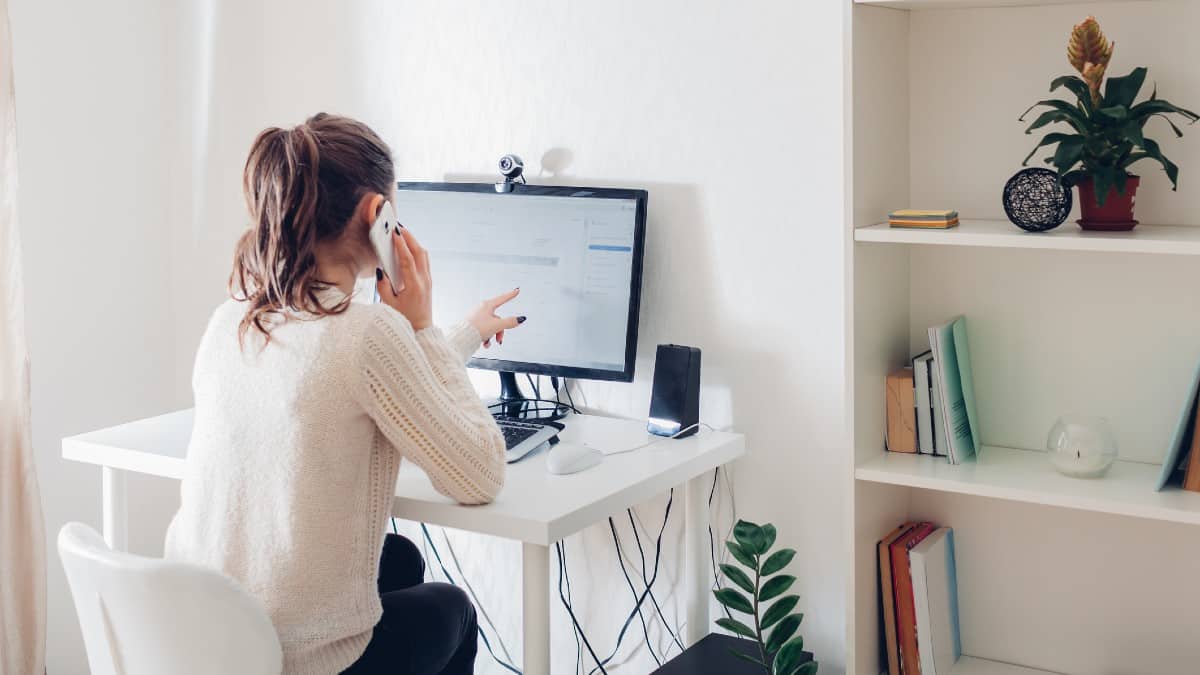Love it or loathe it, working from home is here to stay. And it’s something most people expect to continue after the pandemic. A recent YouGov poll found that 76% of Brits currently working from home think their employer will let them continue in the long run.
But is there a hidden financial cost to working from home? Here, I explore why I think that working from home could hit some families in the pocket. Is there a way to save money on those extra costs?
[top_pitch]
Working from home: the extra costs
It’s true that many families have saved on travel costs while working from home. But there are also several expensive hidden costs that could have an impact:
- Needing to upsize – house prices have gone through the roof this summer. That’s partly due to Brits wanting to swap their open-plan apartments for properties with more rooms so they can squeeze in a home office. But those bigger houses often come with a hefty price tag and a bigger mortgage.
- Having to extend – builders will tell you that they’ve been flat out during the past year. That’s because many families are re-mortgaging to fund extensions or garden rooms. The cost of building materials has also increased in the last year due to shipping problems and higher demand.
- Soaring rental costs – the increased demand for bigger properties has had a knock-on effect on rental prices. Since January, the average rental price has increased by 13.8% according to the Apartment List National Rent Report. And families’ rental costs could increase even more if they need to upsize for extra space.
- Lost work opportunities – this one is hard to quantify, but for younger workers, it’s often more difficult to make an impact in a new career when working from home. It’s also harder for new workers to learn from colleagues when they’re not in the office. Many people may miss out on promotion opportunities in the long run as they haven’t made connections or learnt new skills.
[middle_pitch]
How to save money on extra costs
If you’re struggling with extra costs due to working from home, here are some of my top tips:
- Set aside any travel savings – if you’re spending less on your daily commute, then it’s a good idea to save this money to cover future costs. You may need a bigger house than planned, especially if you are thinking of starting a family.
- Shop around for cheaper mortgage deals – don’t automatically go with your existing provider. There are some super-cheap deals around at the moment if you have a big enough deposit.
- Get several quotes from builders – prices of quotes can vary considerably, and the most expensive ones aren’t always the best.
- Think outside the box to save money – could you afford a bigger house if you moved to a slightly cheaper area? Could you convert an awkward corner into a home office space? Is it possible to use a child’s bedroom as an office while they are at school? Could you save money by building a garden room rather than an extension?
- Talk to your employer – if you’re struggling to work from home due to a lack of space or having young children, many employers are willing to be flexible. Maybe you could agree to go into the office a couple of days a week or change your work hours to fit around childcare.
- Make the most of online networking – it’s easy to get Zoomed out with so many online meetings. But it’s really worth trying to go to online networking events if you can. Getting to know your team better will build up your network of contacts and could help your career in the long run.







